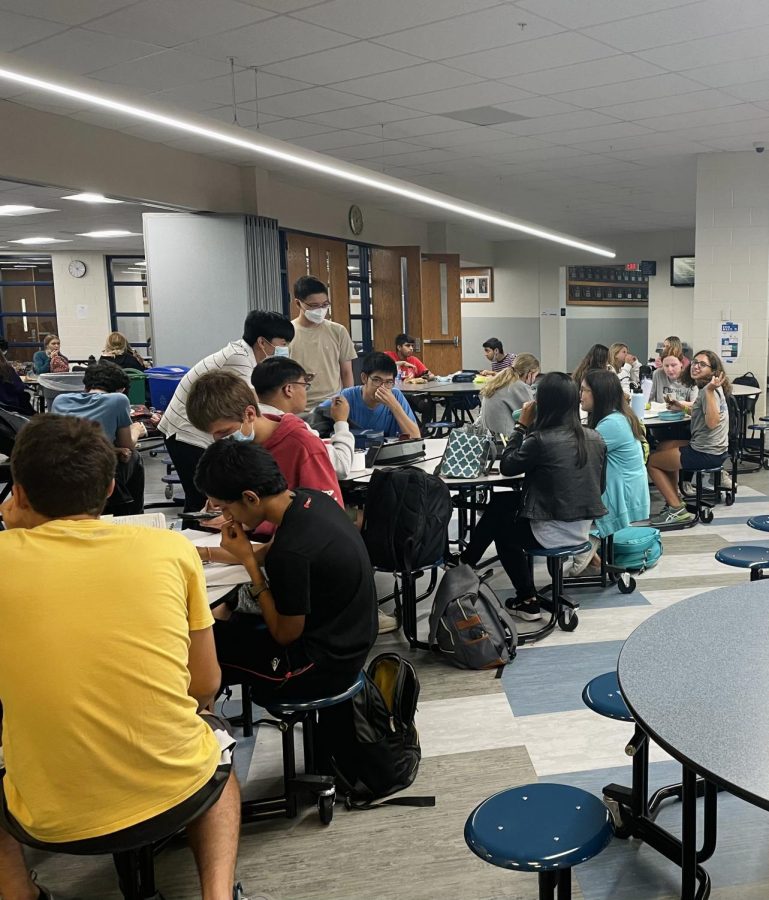Students starving over no snack policy
Students devour food during 7th period lunch.
With the full in-person opening of VHHS came an unpopular policy that is frustrating some students: the no-snack policy. Emerging from Illinois Department of Public Health COVID-19 guidelines, the school was required to set up strict limitations, prohibiting students from eating inside the classroom and only allowing food in select areas like the cafeteria and gymnastics gym.
A Scratching Post survey of 251 students showed 65.3% of students are against the no snack policy. Students report going hours during the school day without food. In extreme cases, students do not have lunch until 7th period.
Anirudh Adiraju (12) explained, “I start the day with Early Bird at 8:15 a.m., and the next time I eat food is 1:50 p.m. That’s [about] 6 hours.”
Through the survey, students have reported that the policy also affects their level of focus during classes. Whether it is taking notes or doing a lab, students report that they are distracted by the lack of fuel in their bodies.
“If I’m in the middle of taking a quiz or a test and my stomach’s making noises, that’s just distracting.” Kate Sear (11) said, “I can’t imagine [hunger] is making me do any better on those tests.”
Sear is not alone in these thoughts. From the TSP survey, 54.18% of students believe that their performance in school has been negatively affected by the no snack policy.
As a cross country runner, Sear shed light on how being a student-athlete is especially difficult without access to food. She emphasized how food other than lunch is needed for a successful run.
“Just eating lunch is not enough to give you the energy you need on your run,” Sear said. “My freshman year, I would always eat a snack seventh or eighth period.”
Despite these vocalized struggles from students, the VHHS administration has no power to make changes to the no snack policy.
Mr. Stilling explained, “Right now, it’s a state mandate. So we don’t have a choice but to enforce it.”
The school, however, is not ignoring the issue.
“I would encourage students if they’re struggling… to come talk to someone in the LST,” Mr. Stilling said. “We’re not that hard and fast with this, that we can’t figure something out for a kid who is struggling to get through the day.”
Sofia Marin contributed to this report.

